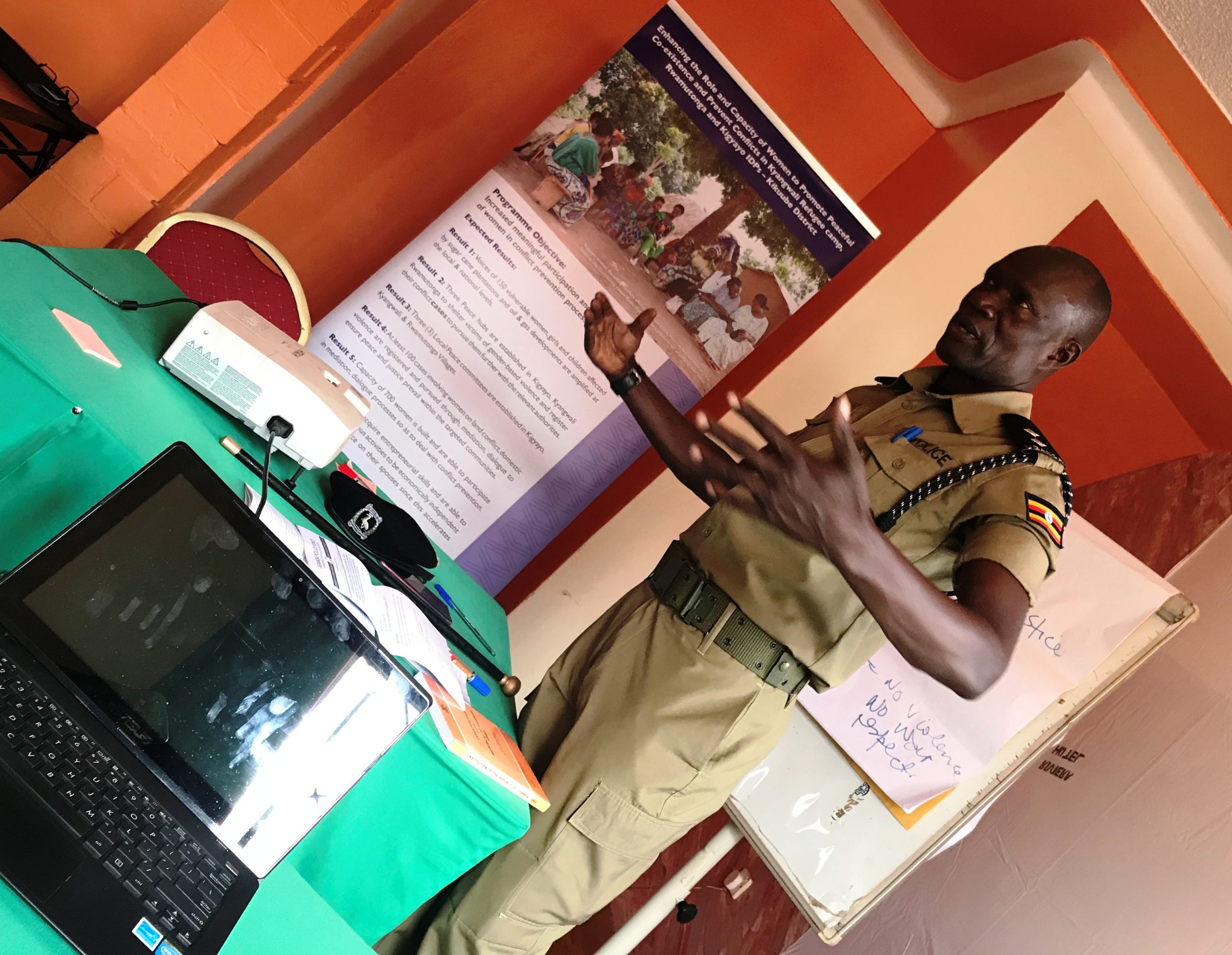Sunday, September 5th, 2021 | By

The National Association of Professional Environmentalist (NAPE) has established and trained three Local Peace Committees (LPCS) to promote peaceful co-existence in Kijayo and Rwamutonga camps for Internally Displaced People and Kyangwali refugee camp.
The LPCs were established during a meeting that was held at Riviera Hotel in Hoima City on August 27, aimed at increasing their understanding on their roles and responsibilities and also strengthening the collaboration between the district leaders, local leaders, police and community members.
Addressing the participants, Joan Akiiza, the Project lead and NAPE Senior Legal Officer said the committees are expected to hold regular meetings to dialogue and mediate issues brought up by the communities and be able to follow up reported cases at different levels for redress and document the outcomes.
She said they should be able to receive updates on early warning conflict incidents and try to mitigate them early enough to avoid escalation of violence.
“As LPCs, you should help in peace building through dialogue and mediation, identify early warning signs of gender based violence and mitigate them and document the types of conflicts registered in your communities,” Akiiza noted.
Oyuk Sam, the Albertine Regional Police Human Rights and Legal Officer said the LPCs should work with police in their communities to promote justice.
“You need to collaborate with police by sharing of information and intelligence in time and refer cases of criminal in nature to police,” Oyuk said.
Annet Kabahaguzi, the Senior District Community Development Officer for Kikuube district said the committee will help to bridge the gap between district local government and the citizens.
“I am happy that NAPE is coming up with this initiative. In addition to existing structures available, the citizens will use these committees to provide instant response to citizens and reach out to relevant offices where a common person cannot reach,” Kabahaguzi said.
Copyright ©2025 Community Green Radio . All Rights Reserved. Designed : Lwegatech